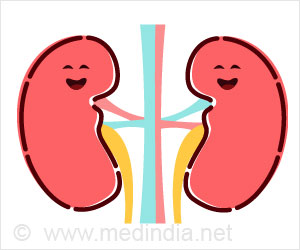Chloroquine, an age-old malaria treatment has been found to improve nanoparticle delivery to tumors. Chloroquine can act as a macrophage-preconditioning agent.
- Chloroquine improves drug delivery to tumors.
- Chloroquine increases circulation of nanoparticles in the body.
- It also reduces the body’s filtration of nanoparticles.
Chloroquine, a 70-year-old malaria drug can block immune cells in the liver so nanoparticles can arrive at their intended tumor site, overcoming a significant hurdle of targeted drug delivery. Using chloroquine, the researchers not only increased the circulation of nanoparticles in the body, but also reduced the body’s filtration of nanoparticles, as well as improved drug delivery to breast tumors. The study was recently published in Scientific Reports, a research journal from the Nature Publishing Group.
When drugs cannot reach cancer cells
Many cancer patients do not respond to chemotherapies because the drugs never reach the cancer cells. Even in nanomedicine, which is one of the best new methods for delivering drugs to a tumor, only about one percent of a dose of nanoparticles will successfully arrive at the intended tumor site, while the rest are filtered out by the immune cells of the liver and spleen.
Chloroquine to aid lung cancer treatment
In this study, mice models received injections of chloroquine, followed by an injection of nanoparticles. Chloroquine decreased the macrophages’ ability to clean up the nanoparticles. The findings are significant, because the nanoparticles not only remained in circulation, but also accumulated in mouse tumors, as well as in the lungs of healthy mice, suggesting that the approach also may enhance treatment for lung diseases.
Chloroquine was invented in the 1940s for the prevention and treatment of malaria. Since it mildly suppresses the immune system, the drug also is used in some autoimmune disorders, such as rheumatoid arthritis and lupus. Apart from this research, the drug is also being studied in other cancers, such as triple-negative breast cancer and pancreatic cancer.
Ferrari, considered one of the founders of nanomedicine and transport oncophysics (the physics of mass transport within a cancer lesion), says researchers and clinicians need to understand the limitations of transport mechanisms to identify effective immunotherapy treatments for patients.
- Joy Wolfram, Sara Nizzero. A Chloroquine-Induced Macrophage-Preconditioning Strategy for Improved Nanodelivery, Scientific Reports doi:10.1038/s41598-017-14221-2
Source-Eurekalert













